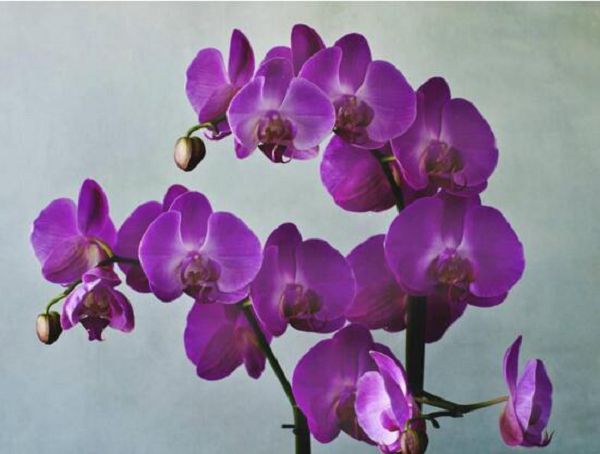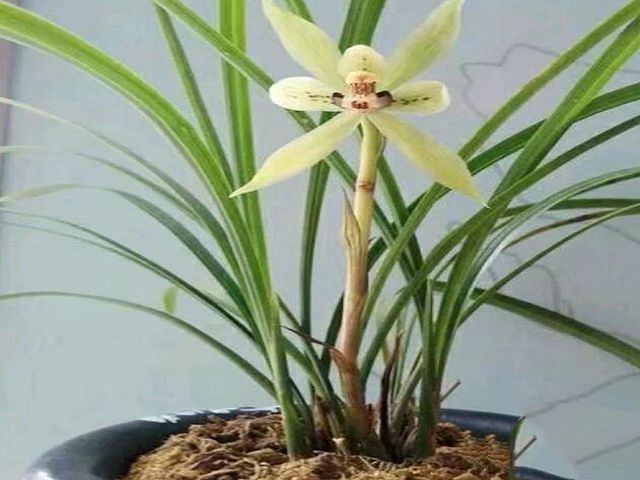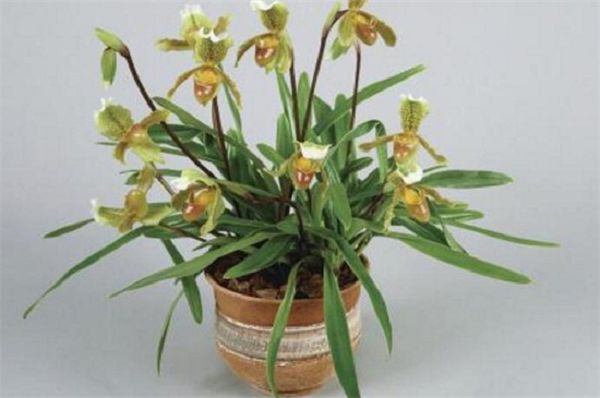What to do when the butterfly orchid is finished? the maintenance method of the flowering period of the butterfly orchid

Phalaenopsis is a typical plant that blossoms for two seasons. After blooming for the first time, trim the roots and pay attention to watering, keeping the light and temperature. After the second flowering period, what should we do when the butterfly orchids bloom twice? Just cut off the flower stem. If you want to prepare for reproduction, then do not cut, careful care to wait for the emergence of small buds, you can carry out pedicel reproduction or stem-cutting reproduction.
Phalaenopsis blossoms after pruning the roots and waiting for them to bloom again
Phalaenopsis blossoms like beautiful butterflies, very beautiful, Phalaenopsis can blossom twice a year and on the same pedicel. Generally speaking, the pedicel will wither after the flower blossoms once, but Phalaenopsis will bloom twice on the same pedicel. Therefore, it is necessary to take care of it once. What if Phalaenopsis orchid comes to the end? After the first opening of the maintenance plant, wait for the second time; after the second opening, cut off the pedicel directly.
After the butterfly orchid blossoms for the first time, keep the pedicel, drag the plant out of the pot, check the root for decay and pathological changes, trim the unhealthy root, check the water moss by the way, change it in time once it deteriorates, and then wait for the second flowering.
After the second flowering, there will be no more flowering this year. At this time, the pedicel can be cut off so that nutrients can be concentrated on the plant, waiting for the coming flowering period.
2. Maintenance of Phalaenopsis during flowering period 1. Suitable temperature
The growth of Phalaenopsis requires high temperature, especially at flowering stage. The flowering temperature of butterfly orchid is 23 °C ~ 25 °C during the day and 15 °C ~ 18 °C at night. If the temperature is too high, it will cause the flowers to thank in advance; if the temperature is too low, it will frostbite the buds and affect the development. In addition, when it is dry in autumn, you can spray water on the flowers to maintain humidity.
2. Control of water quantity
Butterfly orchid florescence requires less water than usual, especially less than summer, the soil can be kept warm and moist. If there is too much moisture, the leaves will be wrinkled and yellow, the buds will be small, and the flowers will be small and dim in color; if the moisture is too little, the leaves will become dry and dull.
3. Sufficient light
Phalaenopsis needs strong sunlight before flowering, which can better carry out photosynthesis, bright color and plump flowers, and keep it ventilated and ventilated to inhale more carbon dioxide.
4. A small amount of fertilizer
Butterflies come in the late growth period, before the arrival of flowering, the nutrition in the plant has been hoarded, this period does not need fertilization, you can apply a small amount of scale potash fertilizer to supply flowers to make it more beautiful.
Propagation methods of Phalaenopsis 1. Pedicel sprouting propagation
After Phalaenopsis blossoms, small buds will grow on the pedicels, and if the buds are cut off and planted, they will grow into new plants. therefore, the pedicels of Phalaenopsis are the fetal bed for cultivating seedlings. However, Phalaenopsis blossoms twice a year, and most of the time it does not grow small buds. At this time, we can accelerate the bud artificially.
Artificial sprouting is really carried out after the butterfly orchid. First remove the residual flowers, disinfect the pedicels, then remove the bracts between the first three segments, apply a catalyst on the leaking buds and put them in the shade of 25 ℃ ~ 28 ℃. The leaflets will grow into leaflets on the 20th day of the month, and several leaves will grow in about 3 months. The roots are also developed, and just cut it off and plant it.
2. Stem-cutting propagation
Stem-cutting propagation is in the growing period of Phalaenopsis, more fertilizer is applied to make the plant grow taller and bigger, and then the stems and leaves with roots are cut off after disinfection with scissors for planting.
Related
- Is the orchid suitable for indoor use? Is it good for the body?
- How to prevent the empty root of orchids?
- What to do after the crab claw orchid is withered?
- Why are the leaves of orchids always yellow? Fertilizing and watering.
- Can the root of the gentleman orchid be saved if it is rotten?
- Diagnosis and treatment of cotton-blowing beetle insects in Cymbidium
- There is a way for a gentleman's orchid to rot.
- What is the most suitable temperature and humidity for the orchid?
- How to raise a gentleman's orchid? Cultivation techniques of Cymbidium
- How to prepare the nutritive soil for the cultivation of Cymbidium



